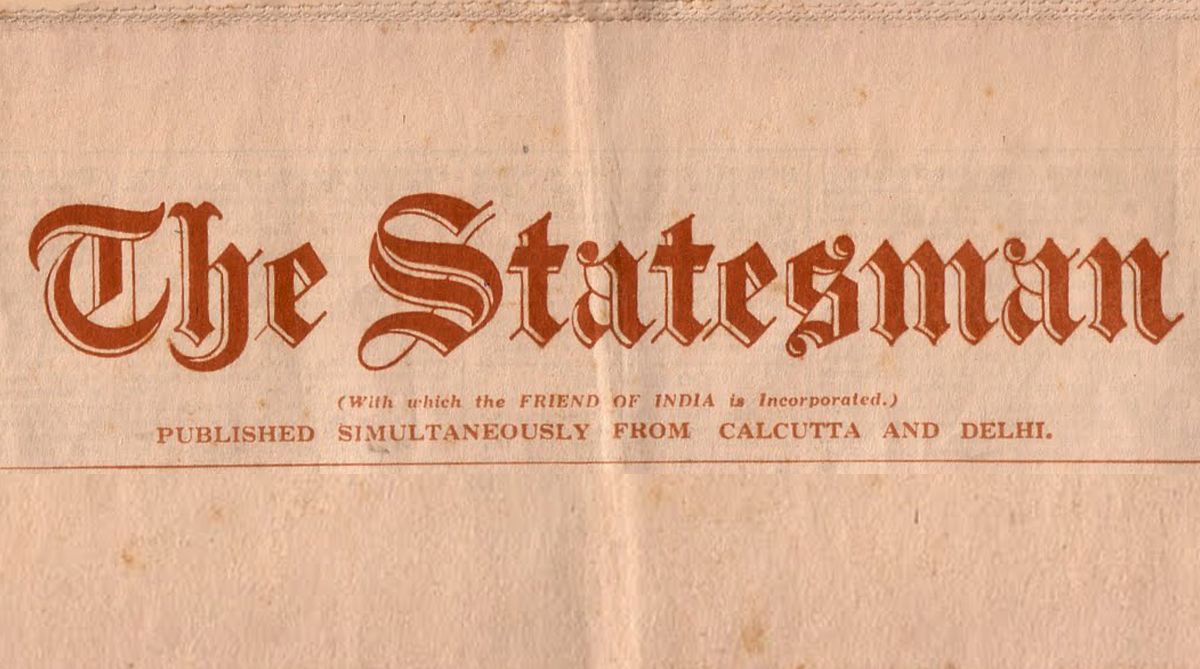A New Day, A New Dawn
There is a surprise for the readers. A special Poila Boishakh gift from none other than West Bengal chief minister Mamata Banerjee. Who has written a piece for this special edition.
On this day a century ago, these were some of the news items The Statesman readers got to read about India and the world.

OCCASIONAL NOTE
In the general debacle which is overtaking Germany and her confederates, the question naturally arises – what does the “Admiral of the Atlantic” propose to do with his fleet? One commentator suggests that a determined sally from Kiel and a lucky encounter with the British-American armada might conceivably delay the triumph of the Allies by interfering with the transport of ten thousand American troops a day to France. Therefore, thinks this observer, it is a case of “now or never” with the Kiel flotilla. There is a certain plausibility about this argument, but we have to remember that, among the other fatal consequences of staking everything upon the submarine, Germany has had to starve her above-water fleet, both as regards shipbuilding and men, in order to build and man the under-water boats. It has been calculated that her loss in personnel through the destruction or capture of submarines has been at least eight thousand, and this figure includes, for obvious reasons, the hardiest and most skilful, although also, of course, the most ruffianly, of her officers and men. Even if this factor be disregarded, nothing but a miracle could afford the Hun navy the smallest chance. If it had the hardihood to venture out now it would be to encounter, not merely the strongest fleet in the world, but also the next strongest from the other side of the “herring pond.” On the whole one cannot help feeling pessimistic as to Admiral Beatty’s chances of conducting another general action against the High Seas Fleet.
THE LATE MR. N.C. HALDAR
Advertisement
SIMLA, OCT 31 The Railway Board record with deep regret the death of Mr. Nirmal Chandra Haldar, late of their office. Mr. Haldar was educated at the Presidency College, Calcutta, and at the Royal Indian Engineering College. He joined the traffic department of the State Railway Service in 1899, and was employed for nearly the whole of his time on the North-Western Railway, where he rose to be Deputy Traffic Manager. In October, 1917, he was transferred to a corresponding post on the Eastern Bengal Railway, and in March, 1918, he was selected to be Assistant Secretary to the Board in their traffic branch. Proceeding to Lahore for this work he there contracted influenza and died in a few days. In the short time during which he served directly under the Board, Mr. Haldar had already made his mark. Mr. Haldar was only forth years of age. His premature death deprives the State of a true and efficient servant and is a great personal loss to all who knew him.
INQUESTS IN BOMBAY
In reply to a memorial to H.E. the Governor, submitted by Sir Jamsetji Jijibhoy, President of the Parsi Panchayat, on behalf of some of the inhabitants of Bombay of various communities, urging the appointment of a whole-time coroner for the city, the Acting Secretary to the Government states that on a careful examination of the cases in which inquests were held during the last three years the Government find no evidence of any considerable delay in the completion of inquests to the point at which orders releasing the body were passed. They, therefore, regret that they cannot accede to the request for the appointment of a full-time coroner, which would involve considerable expense with very slight advantages in return.
THE CLOTH BUSINESS
The Times of India correspondent at Ahmedabad writes:- The utter lack of movement in the cloth business has had its inevitable effect in the accumulation of huge stocks. Mill-owners are faced with the unforeseen difficulty of finding money for these stocks. Time was when they could not weave fast enough to meet the demands of merchants, but all that is changed, and the produce of their looms now goes to swell the collection in the godowns. Mill-owners are contemplating short time working. A general meeting of the Association was held at which this question was discussed. The consensus of opinion is in favour of an extra off-day and the shortening of working hours. The chief difficulty in the way appears to be how to meet the anticipated objection of workmen.
IN HUNGARY
According to Swiss reports, revolution is seething in Hungary. A hundred thousand people demonstrated in Budapest in favour of Count Karolyi and peace and the abolition of the German alliance. They were fired on with rifles and machine-guns and suffered heavy casualties while attempting to reach the Archduke Joseph’s palace. Martial law has been proclaimed in Budapest. Count Karolyi was not appointed Premier because the King does not accept his programme, which includes the complete independence of Hungary.
Advertisement